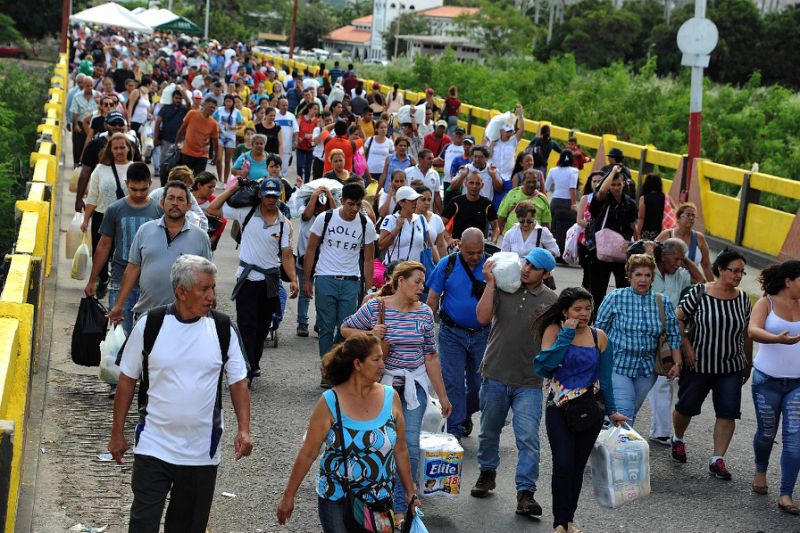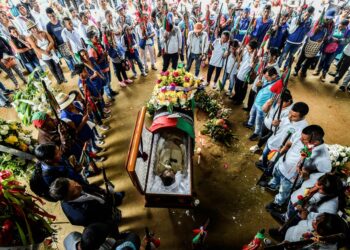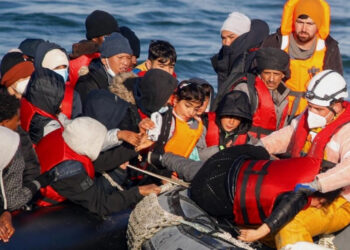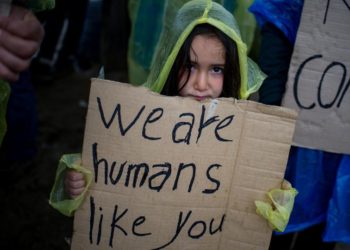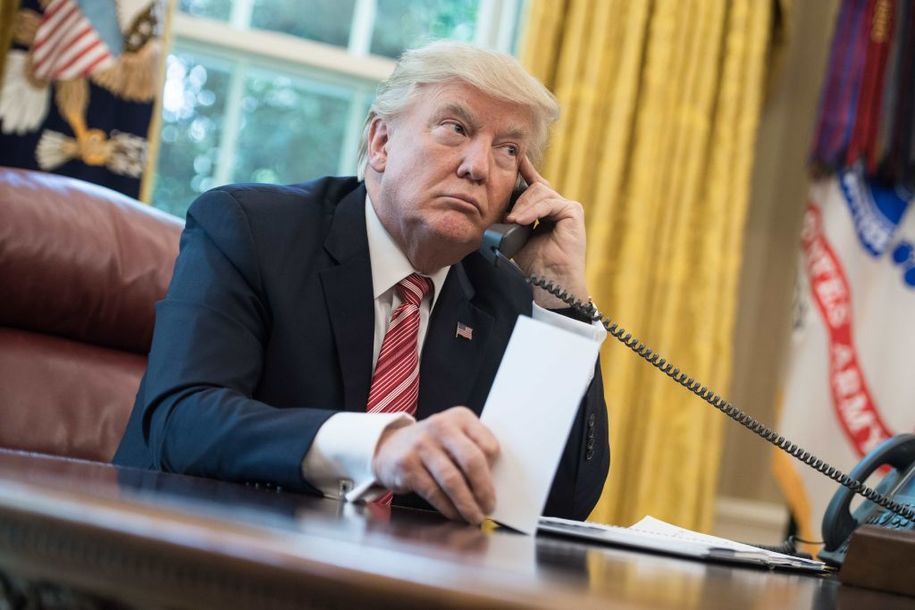The disastrous economic meltdown in Venezuela has led to one of the largest refugee crises in Latin American history, with neighboring Colombia receiving scores of refugees.
According to a United Nations Refugee Agency report, The Colombian Government’s Mass Registration of Venezuelans irregularly present in Colombia (RAMV), implemented with support from the UNHCR and the International Organization for Migration, has documented roughly 440,000 Venezuelan refugees entering the country from April 6th to June 8th. Twenty-seven percent of those refugees are children.
UNHCR Representative in Colombia, Jozef Merkx, told The Globe Post that many of these children are arriving in poor conditions, without their parents or unaccompanied, and malnourished due to the situation in Venezuela.
Other refugees are leaving Colombia to seek political asylum. Outspoken opponents of Venezuelan President Nicolás Maduro have found themselves jailed and are allegedly tortured. After the apparent assassination attempt on the president during his speech at the commemoration of the 81st anniversary of the national guard earlier this month, Maduro is emblazoned to attack his political opponents with even more fervor, experts warn.
“Political repression in the wake of the assassination attempt appears more targeted. While it contributes to making life unbearable for opponents of the regime, it’s the economic and humanitarian crisis that continues to send thousands across the Colombia-Venezuela border every day,” Cynthia J. Arnson, the Director of the Woodrow Wilson Center’s Latin American Program, told The Globe Post.
“The main driver of the refugee crisis is the staggering depth of Venezuela’s economic meltdown. It’s difficult even to comprehend what one million percent inflation–the figure recently used by the IMF–means.”
Living standards in Venezuela are incomprehensible under Maduro and his loyalists’ economic management. Oil prices are at an all-time low, and inflation is the highest in the world. UN human rights experts reported that by the end of 2017, an average family needed 63 times the minimum wage to purchase basic staple foods for their household. Venezuelans feel the effects of devastating poverty in the form of malnutrition and malaria outbreaks, but the report claims they rarely receive treatment services because of medicine and health care shortages.
Extreme resource scarcity has bred widespread violence and criminal activity. A Gallup survey ranked Venezuela as the most dangerous country in the world in both 2017 and 2018. The survey’s results revealed a feeling of insecurity among Venezuelans, with only 24 percent trusting their local police, 42 percent having had property or cash stolen, and only 17 percent feeling safe walking home at night, compared to the world average of 68 percent.
Colombia will continue to bear the brunt of the migrants amidst a crucial political turning point in the country’s long history with the far-leftist Revolutionary Armed Forces of Colombia (FARC) guerrilla group. FARC had been orchestrating violent uprisings and other mass criminal activity and enterprises since its inception in the 1960s. In 2015, then President Juan Manuel Santos negotiated a peace deal with FARC that was narrowly rejected by 51 percent of Colombians in a referendum. Santos then used the national legislature to finalize a revision.
The deal was met with mass disapproval by Colombians. The Washington Times reported that polls showed 70 percent of Colombians disapproved of the leniency and immunity set for the guerrillas. New President Iván Duque, sworn in last Tuesday, was a figurehead for the “NO” campaign against ratifying the original deal. He has vowed to reconstruct the agreement to punish the many FARC leaders accused of “mass killings, forced recruitment of children, serial kidnappings and systematic rape.”
During his campaign, Duque suggested using the $300 million intended to be spent on various reform programs through the peace deal to provide humanitarian assistance to Venezuelan refugees. He has also called for Latin American neighbors to issue permit plans to prevent overwhelming Colombia with migrants. Duque declared that all Venezuelan immigrants, legal or illegal, should be given “humanitarian aid that allows people to have basic care.”
Another of Duque’s campaign talking points was reducing taxes and the fiscal deficit. Dr. Arnson feared that the president’s far-reaching promises cannot be materialized. “The biggest impact of the refugee crisis on the peace accord has to do with the availability of resources, for implementation of the agreement, on the one hand, and for refugee assistance on the other […] There will not be enough money to go around.”
Merkx agreed that the needs of Colombians displaced during the conflict and living in marginal neighborhoods should not be sidelined. Despite the drain on government resources that refugees have created, Merkx observed that Colombians have been generally welcoming.
“We should remind ourselves that many Colombians, for many years, were also going the other way around to Venezuela[…]when we talk to Colombians and host communities, they know there is a need for reciprocity.” Of course, not all Colombians have welcomed refugees with open arms. “There is quite a bit of solidarity, however there are also a lot of worries,” Merkx continued. “There are expressions of xenophobia, discrimination, and prejudice.”
Many Colombians are concerned that the refugees are taking away jobs because they are willing to work for far less money, while others believe that the Venezuelan women are entering the country to become prostitutes. The UNHCR is promoting social media and media campaigns to combat these discriminatory attitudes. One of the initiatives, “Somos Panas Colombia,” roughly translated “We are friends, Colombia,” seeks to inspire compassion in Colombians by sharing the personal stories of refugees.
On August 8, the United States Agency for International Development pledged almost $9 million in humanitarian assistance towards the influx of Venezuelans to Colombia. Merkx said the international community must continue to support Colombia to help stem the severity of the humanitarian crisis without worsening the conditions of already vulnerable and marginalized Colombians.
Dr. Arnson argued that providing sufficient aid to both communities is more of a dream than a possibility. “Humanitarian workers in Colombia–both local and international–are cognizant of the fact that resentment of Venezuelan refugees will grow if assistance is not provided to poor communities in addition to the refugees themselves. There’s a wide gap, however, between the concept of holistic approaches and the resources and state capacity needed to make them a reality.”


